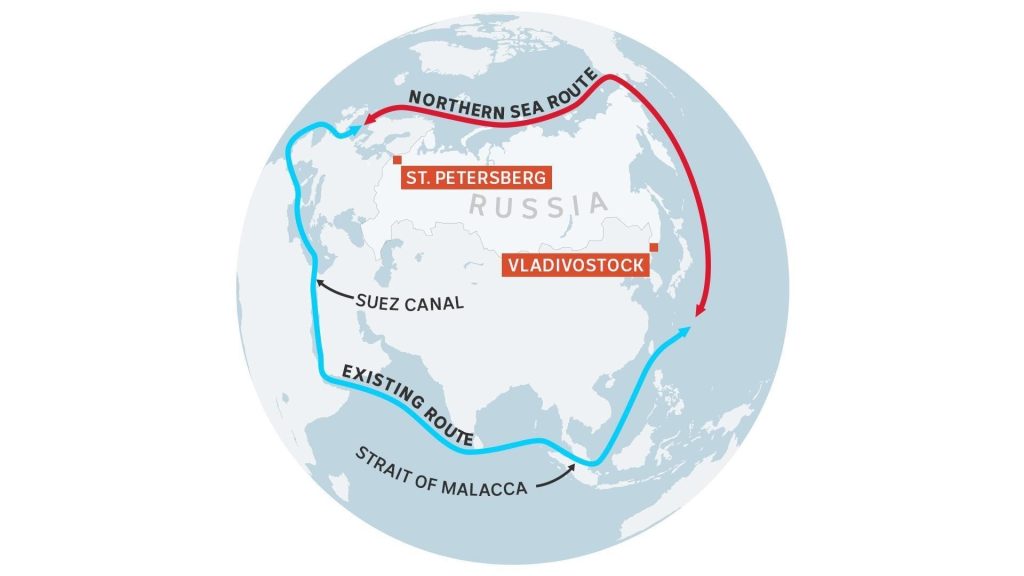Russia and China will strengthen cooperation on Arctic issues, according to a joint communiqué following the 30th regular meeting of their heads of government. Russian Prime Minister Mishustin recently visited Beijing and took part in these discussions.
The communique states “They agreed to develop cooperation on Arctic issues, including interaction within the Subcommittee on Cooperation on the Northern Sea Route of the Russian–Chinese Commission for the preparation of regular meetings of the heads of government,” the document states. The aim of this cooperation is to increase the safety of navigation in high latitudes, create polar vessels and technologies, train personnel, increase cargo traffic along the Northern Sea Route (NSR), and strengthen its competitiveness compared to other international sea routes.”
The Northern Sea Route (NSR) is a maritime route in the Arctic Ocean that connects the Pacific and Atlantic oceans through the Arctic and is piquing the interest of numerous nations—India, Russia, and China, in particular. It promises to reduce the distance between Asia and Europe by 10-14 days compared to the Suez Canal route. The Arctic ice’s thawing makes the passage increasingly viable.

Russia and China also agreed to enhance the region’s sustainable development, including within relevant international platforms, such as the Arctic Council. The current issue of the Arctic Council’s magazine, “Pathways,” can be downloaded here.
Part of the communique deals with a commitment from both countries to train specialists for navigation in polar waters. According to Russian Minister of Transport Andrey Nikitin, the memorandum is aimed at creating conditions to enhance the safety of navigation in Arctic waters, protect the lives of seafarers, and preserve the marine environment in the ice-covered regions of the world’s oceans.
According to the ministry, highly qualified specialists from China will be trained in accordance with international standards at leading Russian maritime institutions—the Maritime State University and the Admiral Makarov State University of Maritime and Inland Shipping. In addition to theoretical instruction, Chinese seafarers will undergo hands-on training using specialized simulators at Russian educational institutions, ensuring a high level of preparedness for work in the challenging conditions of polar waters.
Further Reading
Yakutia’s Naiba Port to become Trans-Arctic Transport Corridor’s Gateway to China

 Русский
Русский













